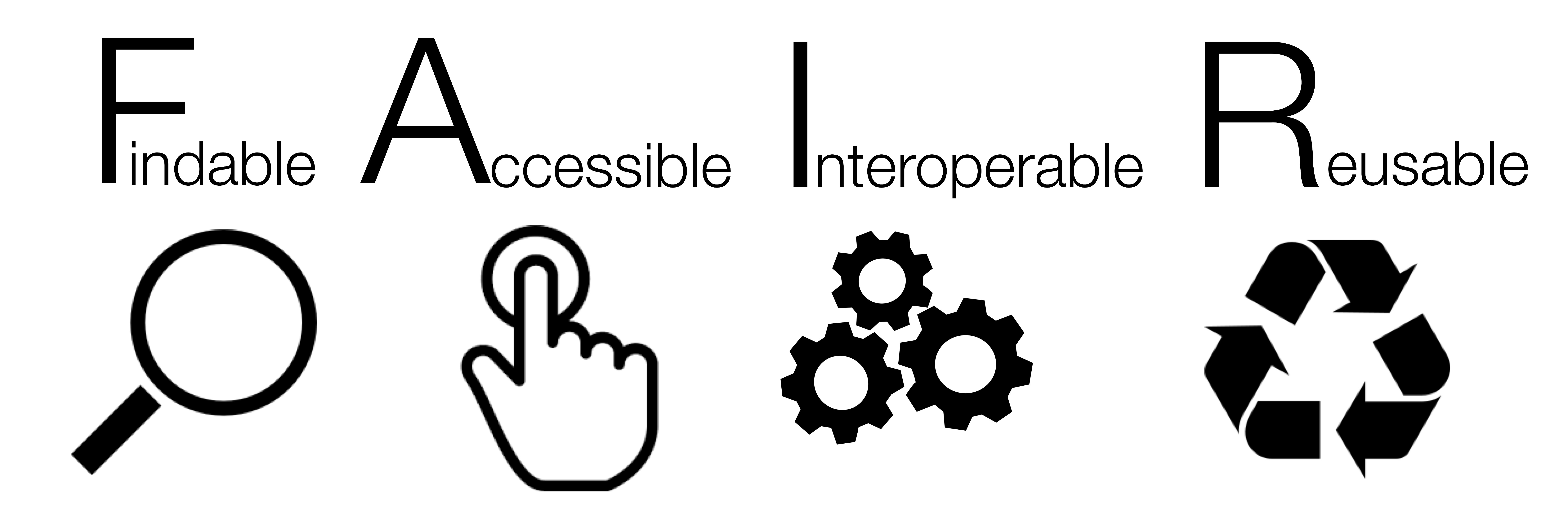Swepub : FAIR enough?
National Library of Sweden (NLS) has received an assignment from the Swedish Government to develop criteria assessing the extent to which scientific publications complies with the so-called FAIR principles.
The Swedish Research Council has received a parallel assignment from the Government regarding research data. NLS is also instructed to propose a method that provides a comprehensive overview of the extent to which scientific publications meet the FAIR principles. Due to that Swepub includes data on scientific publications with open access, it is interesting to know how FAIR is Swepub then.
What is FAIR?
FAIR stands for Findable, Accessible, Interoperable och Reusable. FAIR principles are an internationally recognized framework to ensure that data on research and scientific output can be discovered, accessed, integrated and reused by humans and machines. Because FAIR is a general guideline for ’FAIRness’ of data rather than a specification, it is not entirely unambiguous to interpret FAIR principles in regards to data in Swepub. Yet we can note that data in Swepub already is quite FAIR and that the planned development is going to push Swepub further to the right direction.

Bild: Sangya Pundir, Wikimedia Commons CC BY-SA 4.0
FAIR in Swepub
Findable
F1. Globally unique and persistent identifiers
Swepub uses identifiers from Standard Identifier Sources Länk till annan webbplats., e.g. DOI, ISBN, ISSN, ORCID and URI but even local like LibrisID and local person identifiers at the contributing organizations
Länk till annan webbplats., e.g. DOI, ISBN, ISSN, ORCID and URI but even local like LibrisID and local person identifiers at the contributing organizations
F2. Description with rich metadata
Swepub provides and applies national guidelines Pdf, 528 kB. and Swepub MODS format specification,
Pdf, 528 kB. and Swepub MODS format specification, Pdf, 953.1 kB. with specification for mandatory metadata
Pdf, 953.1 kB. with specification for mandatory metadata
F3. Registration and indexing in searchable resource
Swepub both provides data from searchable publication databases at the Swedish universities and authorities and is itself a searchable database via www.swepub.kb.se Länk till annan webbplats.
Länk till annan webbplats.
F4. Specified identifiers
Swepub MODS supports specified identifiers according to Standard Identifier Source Codes Länk till annan webbplats.
Länk till annan webbplats.
Accessible
A1. Standardized communication protocol
(Meta)data in Swepub are accessible for example via OAI-PMH Länk till annan webbplats. and APIs via HTTP; please see Data access
Länk till annan webbplats. and APIs via HTTP; please see Data access
A1.1. Open, free and universally implementable protocol
Protocols like OAI-PMH which Swepub uses are universally implementable, open and free protocols, as well as the database itself via www.swepub.kb.se Länk till annan webbplats. and bibliometri.swepub.kb.se
Länk till annan webbplats. and bibliometri.swepub.kb.se Länk till annan webbplats.
Länk till annan webbplats.
A1.2. Protocol allowing authentication and authorization procedure
Registration of OAI-PMH-server at Libris is required for (meta)data delivery to Swepub.
A2 Metadata are accessible, even when the data are no longer available
No, because metadata in Swepub are provided by data providers at the Swedish universities and authorities, metadata disappear when removed from the local publication databases, but this is something that needs to be addressed in the future
Interoperable
I1. Formal, accessible shared and broadly applicable language
(Meta)data in Swepub are accessible and readable for both humans and machines, e.g. via XML and in plain text with UTF-8 encoding via web interfaces
I2. Vocabularies that follow FAIR principles
Swepub uses an own modification of MODS format Länk till annan webbplats. expressed via XML Schema Language
Länk till annan webbplats. expressed via XML Schema Language Länk till annan webbplats.
Länk till annan webbplats.
I3. Qualified references to other (meta)data
(Meta)data in Swepub are linked to the original record in the local publication databases, to other databases through identifiers like ISI ID, Scopus ID and PubMedID as well as to the output itself through identifiers like DOI, ISBN and ISSN. It is even possible to refer to related projects. However support for references to related research data and other related information needs to be applied.
Reusable
R1. Plurality of accurate and relevant attributes
Swepub uses MODS format to list mandatory and eligible metadata elements
R1.1. Clear and accessible data usage licence
License information is going to be applied in Swepub MODS format specification in 2019
R1.2. (Meta)data are associated with their provenance
According to format specification in Swepub at least originators affiliated with the organization responsible for entering the record must be given, and entering all originators is recommended, though not mandatory
R1.3. Domain-relevant community standards
Swepub uses standards which originate from international standards, e.g. Swedish Standard Classification of research subjects 2011 Länk till annan webbplats. based on OECD Fields of Research and Development
Länk till annan webbplats. based on OECD Fields of Research and Development Länk till annan webbplats., MARC Code List for Relators
Länk till annan webbplats., MARC Code List for Relators Länk till annan webbplats. for roles, an own modification of output types
Länk till annan webbplats. for roles, an own modification of output types Pdf, 422.5 kB. based on CASRAI in Swepub Analysis
Pdf, 422.5 kB. based on CASRAI in Swepub Analysis Länk till annan webbplats., and provides these in MODS format via XML.
Länk till annan webbplats., and provides these in MODS format via XML.
